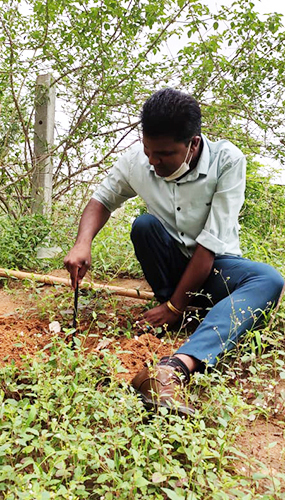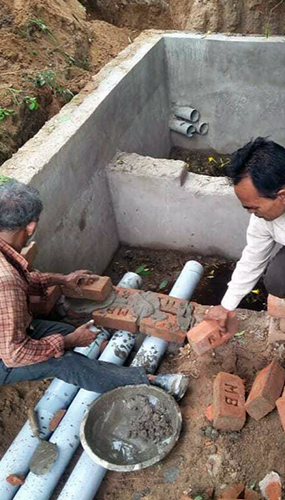Past Programs
Village Upliftment (VU)
Our Village Upliftment program deployed trained Lokmitras, or “friends of the people,” to foster sustainable development in rural communities. Over three years, these dedicated individuals addressed crucial needs such as education, sanitation, and income generation. By promoting local leadership and self-reliance, our programs facilitated comprehensive development across 12 village communities.
Lokmitras, college graduates with a passion for service, collaborated with community members and local NGOs to develop solutions for various issues, including sanitation, health, education, and agriculture. Notably, they achieved a 98% vaccination rate in their 12 villages, planted 10,000 trees, initiated supplemental education programs, and secured substantial governmental support for infrastructure projects.
These efforts not only improved living standards but also inspired further community and governmental investment, ensuring the sustainability of these programs.
Read Real-Life Stories of UpliftmentNirmal Village Project
Lokmitras, meaning “friends of the people,” are dedicated individuals offering relief, education, and mentorship in their villages. Supported by the Share & Care Foundation, they provide essential supplies and guidance to uplift their communities. The Nirmal Village Project highlights how Lokmitras are making a meaningful difference by fostering sustainable development and empowering residents at the grassroots level – watch now.
Addressing the critical lack of sanitation in rural India, our Nirmal Village Project provided access to indoor toilets and promoted hygiene practices. The word “nirmal” means clean or pure; with over 600 million people lacking proper sanitation, our project’s focus extended beyond merely building toilets to transforming community mindsets and behaviors regarding hygiene. In total, we were able to build 770 toilets in 5 villages in rural Gujarat.
The Nirmal Village Project selected villages based on thorough assessment and collaborated with local stakeholders to ensure proper use and upkeep of sanitation facilities. Community members were engaged as field managers and workers, fostering ownership and economic benefits from the projects.
Our programs also included extensive sanitation training and educational seminars tailored to different demographic groups, ensuring a comprehensive understanding and adoption of hygiene practices.
Continuous monitoring and evaluation ensured long-term engagement and proper maintenance of the sanitation infrastructure. By integrating education, community involvement, and ongoing support, Share & Care Foundation’s programs created lasting, impactful change within these rural communities.
Lokmitras Reaching Out to Communities
Empowering Villages Through Relief, Education, and Mentorship




